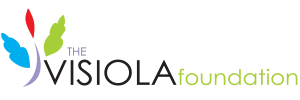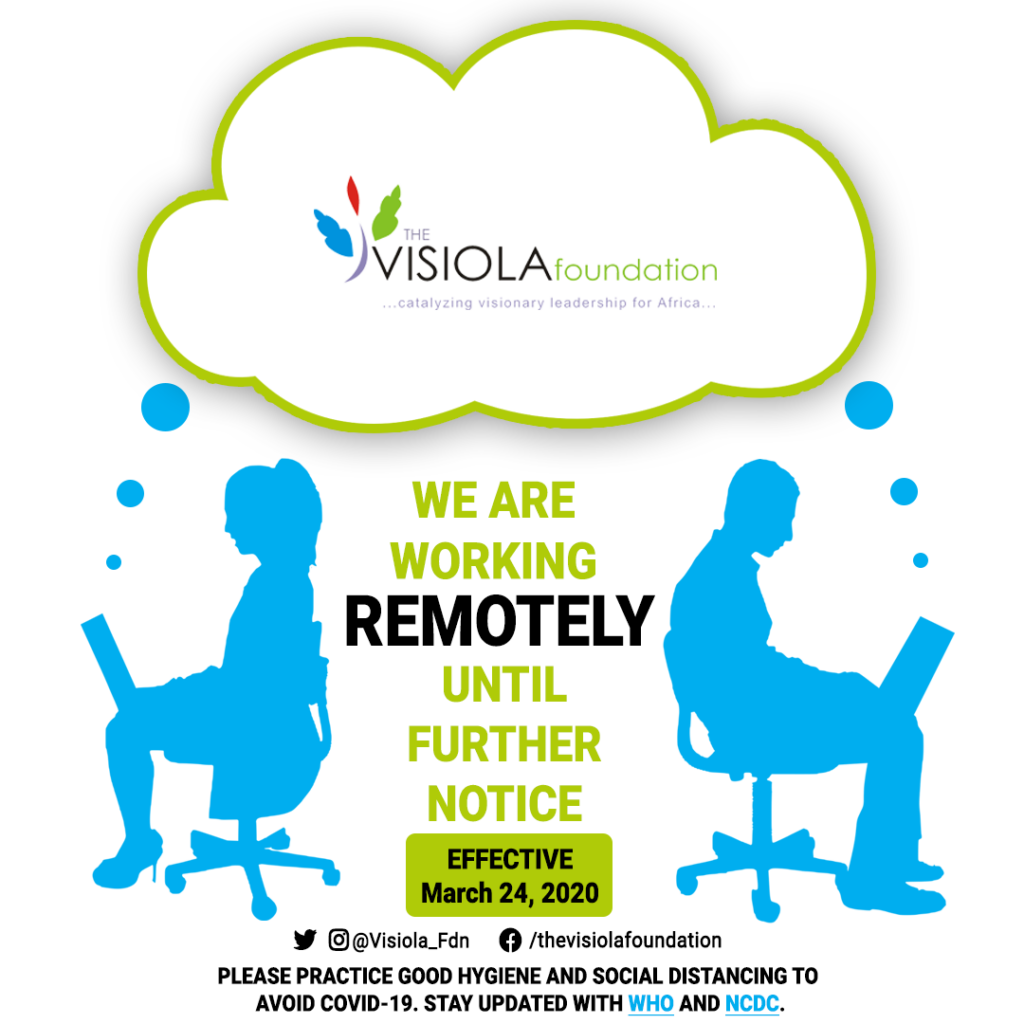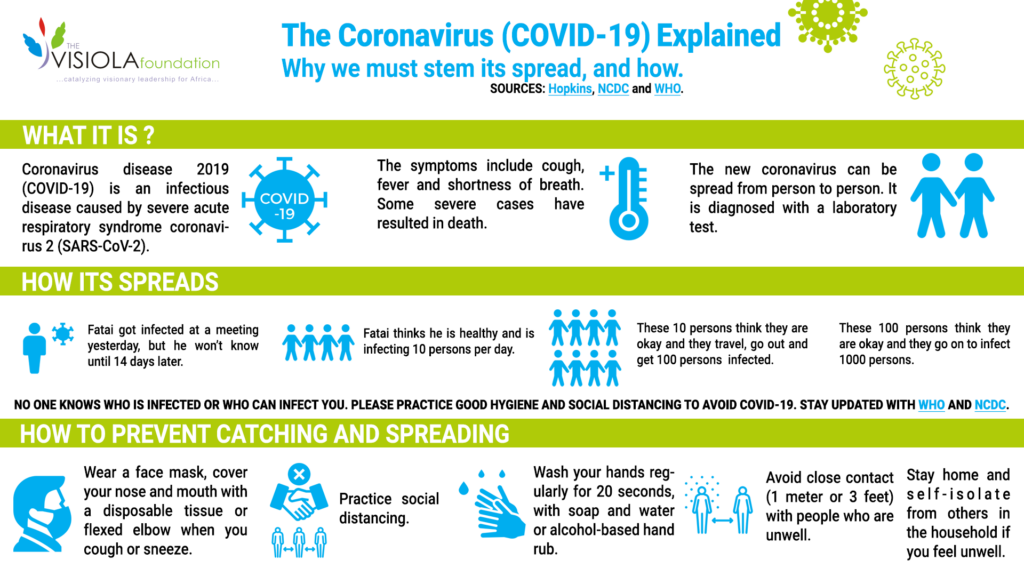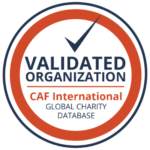the visiola foundation e-newsletter
Issue Q2, 2020
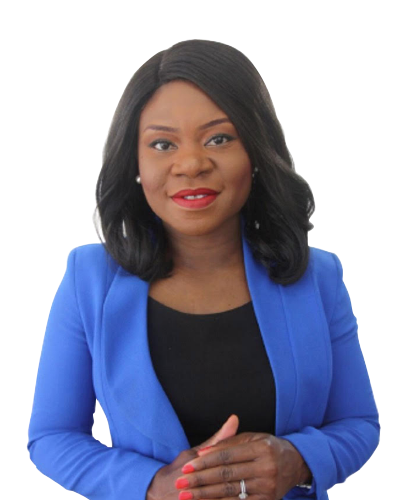
Ladé Araba
Founder and President of the Visiola Foundation
Founders' Corner
THE VISIOLA FOUNDATION’S RESPONSE TO THE COVID-19 PANDEMIC
At the Visiola Foundation, we are focused on doing our part to support our staff, students, and the larger community during the COVID-19 pandemic. Below is a summary of our response to the on-going global pandemic.
Effective March 24, 2020, we transitioned to virtual programs with staff mandated to work from home until further notice. We equally paused all business travel, non-essential events, and office visits. We moved rapidly to ensure that all staff had appropriate equipment and internet access for them to continue working remotely and to stay connected with each other. To maintain a strong sense of community, in addition to focused weekly staff meetings, we held daily “pow-wow” sessions where we discussed work productivity and organizational culture and where we checked in on staff’s wellbeing.
We took a pragmatic approach in creating our on-going Virtual STEM Classes to ensure that students in our programs could continue learning and engaging in academic discussions while schools were closed. Due to the fact that our students lack computers, as well as reliable electricity and internet access at home, we rely heavily on bulk text messages, WhatsApp Groups, pre-recorded videos, and Google Classroom to keep them connected and learning. Students are awarded mobile data plans to facilitate their participation.
In addition, the Foundation disseminated useful information via its social media accounts to create awareness about the pandemic and advice from reliable medical sources. In addition, staff donated and distributed relief materials to households in their communities.
Please continue to follow prescribed medical advice, including wearing masks, frequent and thorough handwashing with soap and water, using hand sanitizers, and maintaining a distance of at least 6 feet between people.
It is our delight to share these program and activity updates with you. Please excuse the delay and thank you for your continued support.
Warm Regards,
Ladé
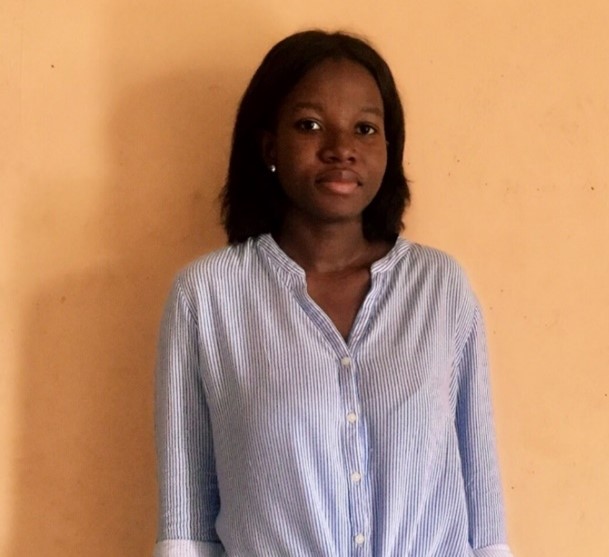
Mary graduates from Ashesi University with a BSc in Electrical And Electronics Engineering (Cgpa: 3.4/4.0) Dean’s List
SCHOLAR GRADUATES FROM ASHESI UNIVERSITY WITH A BSc IN ELECTRICAL AND ELECTRONICS ENGINEERING (CGPA: 3.4/4.0) Dean’s List
Being enrolled in Ashesi University with the financial aid received from the Visiola Foundation (and laptop from Mrs. Araba) has been one of the best experiences in my life. I have grown intellectually, socially, and academically.
My entire four-year journey at Ashesi University studying Electrical Engineering has been full of ups and downs which has helped in shaping various aspects of my life. During my first two years at Ashesi University, it was quite difficult adjusting to the university’s system, specifically managing the academic pressure associated with the courses I took and also balancing this with my social life. One thing that helped me cope and sail through was the regular mentorship sessions I received from the Visiola Foundation.
The Foundation connected me with experienced and reputable mentors who shared their experience on how they were able to cope with academic pressure during their college days. These mentors also provided advice on the skills needed in the working environment and the expectations of most employers, which helped me better handle my academic life. Also, getting involved in the Visiola Foundation’s STEM camps as a facilitator helped me develop better communication skills and more interest in web development and robotics.
All too soon, my four-year journey was coming to an end and I was really looking forward to my last semester physically at Ashesi University and the graduation ceremony which was disrupted by the COVID 19 pandemic. Moving lectures online and studying from home was a bit challenging because I had to balance school work with house chores.
However, this did not prevent me from successfully completing my four-year journey and graduating with an Electrical and Electronics degree. It is only sad that I will not be able to walk across that stage physically to receive my certificate and thus, will have to be contented with the virtual graduation after working so hard for four years. I hope by the set date of the graduation ceremony (August 2020), this pandemic dies out so that there can be a physical graduation ceremony and I can celebrate as I have always intended.
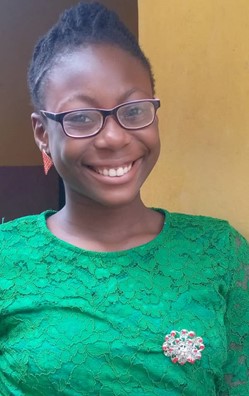
Uchechimere (15) participated in the 2020 International Youth Delibration Conference
STEMLEG STUDENT PARTICIPATED IN THE 2020 INTERNATIONAL YOUTH DELIBRATION CONFERENCE
Uchechimere (15), a 2019 STEM Camp and 2020 STEMLEG student, participated in the International Youth Deliberation on Energy Futures and presented a paper she co-authored with other students to the United Nations Economic, Social, and Cultural Organization (UNESCO). She was one of 22 students chosen globally from 18 countries and she shares her story below.
“Being part of an International project was a rare opportunity. At first, I was nervous knowing that I would have to talk to students and teachers from different schools as well as Professors from the University of Alberta, Canada, UNESCO, and Senators from Canada. We started by holding regular meetings via Zoom and writing about climate change, energy justice, and energy transition on blogs, and talked about the similarities and differences in the energy sector in each country.
We were supposed to travel to Portugal in April to further discuss the topic, “Energy Futures, Energy Justice, and Energy Transition” but could not because of the Covid-19 pandemic. Since the conference could not hold physically, the organizers arranged a four-day Writer’s Retreat using WhatsApp, Email, Zoom and Google Drive. We were divided into four groups to discuss the theme along the following areas: Education, Cultural and societal change, Economic change and Collaboration. We deliberated and contributed to the report via Google docs and Google drive.
Sometimes I would have to wake up really early to join the meeting because of the time difference. It was tiring but I pulled through. When we were about to end the Writer’s Retreat, we were divided into three groups — the Op-ed group, essay group, and the presentation group. I opted for the essay group as it allowed me to express myself in writing.
During the course of the program, I learnt the importance of education to effect an energy transition globally. People need to be taught early how to use energy and how to transition from current fossil fuel based energy sources to renewable energy sources. Furthermore, I learnt that there is power in numbers. When you work collaboratively in a team, you can achieve great things. I also learnt about other people’s cultures and how to be confident and bold because I have a voice, and my voice counts. I realized that my ideas and views matter as much as other people’s who are more technically advanced.
Personally, the next steps for me after this program will be to create awareness and educate people about renewable energy. I will use social media to share my opinions and activities, and will engage with individuals and non-profit organizations who are working to address energy issues.
I look forward to future collaborations and wonderful programs like this. Thank you Visiola Foundation!”
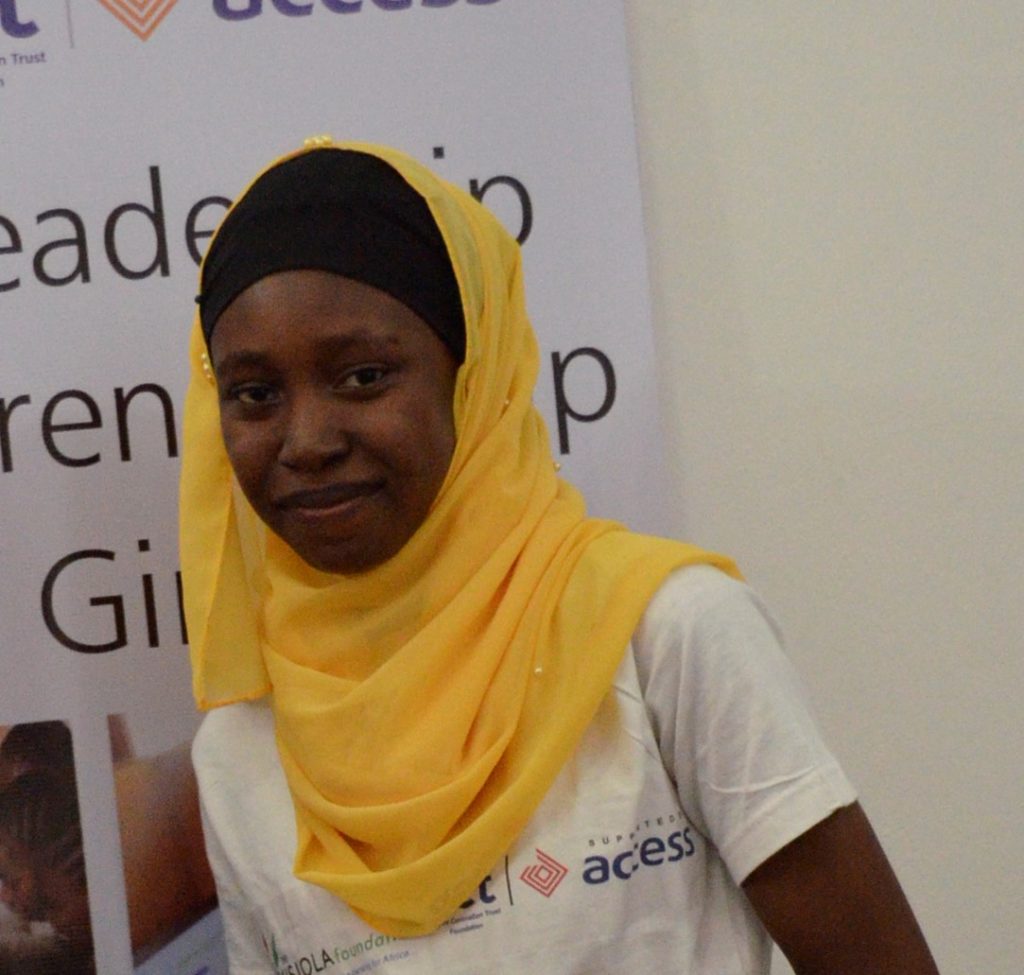
Sekinat (20), a 2019 Summer Coding Boot Camp graduate
CBC GRADUATE COMPLETES INTERNSHIP
Sekinat (20), a 2019 summer Coding Boot Camp graduate shares her internship experience at NobleHerald Resources Company.
“I had an engaging and fruitful three-month internship working as a Creative Content Writer for the NobleHerald Resources Company. During my internship, I had the opportunity to deliver content for three clients, and had to develop engaging and interesting content for these clients on social media as a means to improve and grow their brands as well as encourage customer engagement.
Each client had a unique audience, from education to corporate brand marketing, to job eligibility and validation. It was challenging because I had to come up with different ideas for content for each of the clients. This content had to be interesting and engaging, and had to serve as a reminder for possible leads if they needed such services in the future.
Thanks to the Visiola Foundation, the computer programming skills that I acquired from the 2019 Coding Boot Camp prepared me for this role. I had the opportunity to learn, brainstorm ideas that improved the quality of my work, and I gained firsthand experience in a corporate setting.
This experience taught me time management and efficiency as I had to deliver high quality content in a timely manner. It was a wonderful experience.”
VIRTUAL STEM CLASSES DURING SCHOOL CLOSURES
The Visiola Foundation pivoted to virtual STEM classes designed for students in its programs to continue learning and be engaged in academic discussions. Classes were held daily from 9:00 – 11:00 a.m. (WAT) from Monday to Friday and provided instruction in Mathematics, Physics, and English Essay Writing. They were held via bulk text message, WhatsApp, and Google Classroom.
Students in the virtual STEM classes share feedback from their experience.
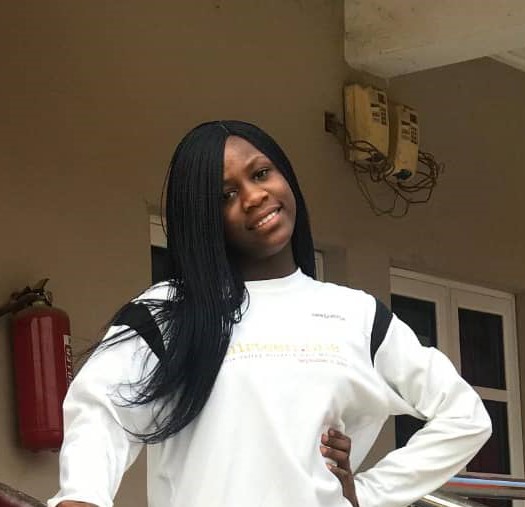
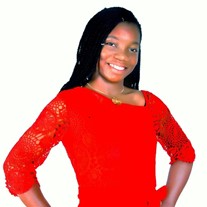
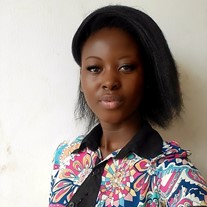
did you know
In sub-Saharan Africa, 89% of learners do not have access to household computers and 82% lack internet access.
Across sub-Saharan Africa and Asia, there are 184 million fewer women who own a mobile phone than men and costs are featured as the second most important concern for women who are not connected.
In sub-Saharan Africa, 26 million learners are not covered by mobile networks.
Economies that invest the least in health and quality education today will have a workforce that’s up to 50% less productive.
88% of children (202 million) in sub-Saharan Africa of both primary and secondary school age are not proficient in reading, while 84% (193 million) are not proficient in math.
At the upper secondary level in sub-Saharan Africa, 57% of schools have electricity, but only 25-50% have access to drinking water, hand washing facilities, computers and the Internet.
Bringing the Internet to those who are offline would lift 500 million people out of poverty. Plus, it would add an additional US$6.7 trillion to the global economy. Increasing our global connectivity is an essential element to building greater inclusivity.
In tertiary enrolment, men’s dominance has been reversed globally and gender disparities favour women, except in sub-Saharan Africa and Southern and Western Asia.
Across sub-Saharan Africa, just 64% of primary and 50% of secondary teachers have received minimum training, and this frequently doesn’t include ICT skills.
Source: UNESCO, CISCO, UN, eskills4girls
